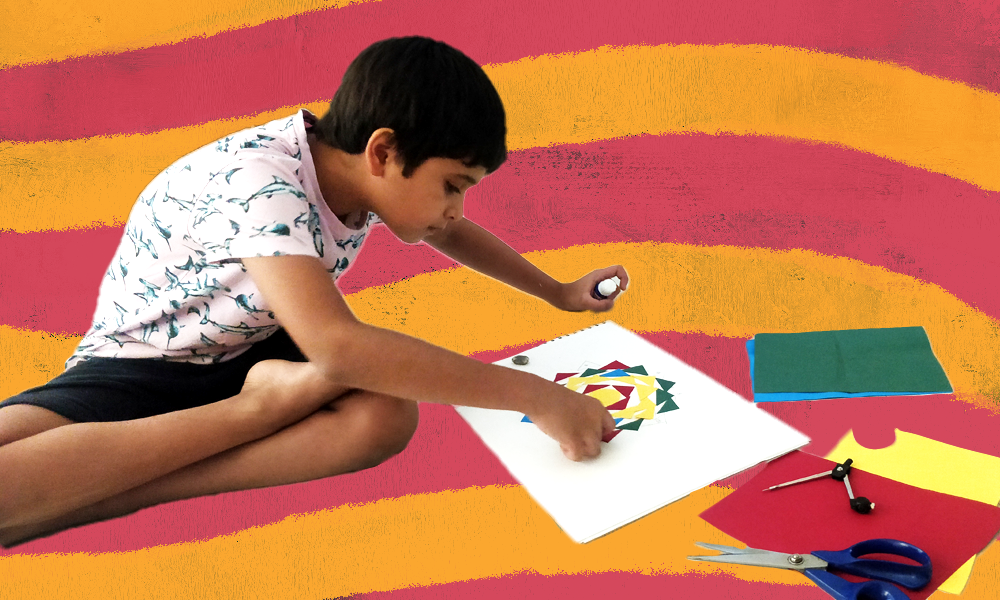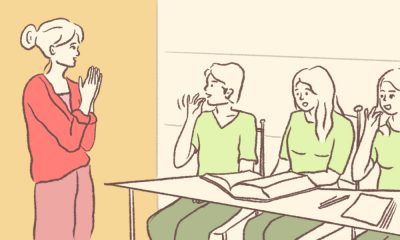Special Needs
How the COVID-19 Lockdown Is Impacting Students With Autism and ADHD
'I sometimes completely forget I have classes.'
The words “just focus” have been belabored to Rani, a 25-year-old student from Florida, far too many times especially when she brings up her ADHD diagnosis. It is estimated that in the United States alone, nearly 6 million children have been diagnosed with ADHD which is characterized by impulsivity, inattention, and hyperactivity. For Rani, those around her have tried to convince her it’s a made-up condition, she said.
Despite not being great at time management, strict attendance requirements in classes and a particular way of multitasking provided Rani with structure which helped her focus. Like millions of institutions around the world, Rani’s college also closed because of the COVID-19 crisis and classes were shifted online during the last week of March. Due to the challenges that ADHD presents in her life, the move to distance learning has not been easy for Rani.
“I sometimes completely forget I have classes, I lose focus during assignments and lectures frequently now that I have a whole new range of distractions to cope with.”
The increase in screen time has made it easier for her to fall down an all-consuming online rabbit hole. “I’ve found assignments that normally would take me an hour are now taking me all day,” she told Re:Set. Under regular circumstances, she would head to the library or to tutoring to focus better on assignments but those options are no longer available. “It’s been difficult but I think this lockdown will finally help me learn a new form of time management,” she reflected.
Across the world in Mumbai, 10-year-old Madhav Kalra’s school has taken the decision to not conduct online classes. Madhav was diagnosed with autism and ADHD at the age of four and now attends The Aditya Birla Integrated School (TABIS), a school for children of determination. The lockdown has brought it with a lack of access to the occupational and speech therapies Madhav receives, his mother, Mugdha Kalra, told Re:Set. The school has sent out reading material and activities to keep students engaged.
TABIS is also associated with a mental health clinic that often sends out resources for parents. While Madhav misses his regular school routine, the novelty for him has been having both his parents at home. “Madhav is likely to go through separation anxiety when we resume normal life because right now he’s seeing us around him all the time,” Kalra, a writer, said.


The Kalras have built a schedule for Madhav that includes plenty of physical exercise and activities to keep him engaged at home.
Describing how they are coping with the change, “The only thing I am doing at the moment is following a structure, not disturbing his routine and trying to just keep happy,” she elaborated. For a child on the spectrum, a routine is paramount. Kalra and her husband created an activity schedule for their son as soon as the lockdown was announced. Madhav’s day is filled with a lot of physical activity like yoga with his mother, running up and down the stairs with his father and jumping on the trampoline, which has been helpful to meet his sensory need for movement. His schedule also includes academics with his grandmother and being the ‘little assistant’ to Mugdha, helping her around the house. “This is a good time to not hanker upon the academics. Life skills have been a good idea to develop around this time because they help you and they help the child and that has been great,” Mugdha added.
Keeping your child engaged
Disruption to normal routines caused by the lockdown has resulted in more time being spent online. According to a report by the World Economic Forum, internet usage in parts of the world has gone up by 50%. Children have ADHD and are on autism spectrum are attracted to screen-based technologies, sometimes up to the point of addiction, remarked psychologist and founder of Learning Works for Kids, Dr. Randy Kulman.
Despite an inclination towards screen-related activities, many parents are facing difficulties in keeping their kids’ attention to screen-based learning, he pointed out based on feedback from parents and educators.


Madhav’s mother Mugdha Kalra believes that this lockdown is a good time to focus on building life skills instead of only focusing on academics.
This could be because children with ADHD and autism frequently have difficulty attending to activities that do not inherently interest them. He added that more screen time could result in increased irritability and keep them away from beneficial activities like exercise and hands-on play.
He suggested establishing a healthy ‘play diet’ for children which includes different activities that touch upon physical, social, creative, and unstructured play to take away the sole focus from screens. Physical play includes active movements, while social play involves interactions with others, creative play focuses on building artistic skills while unstructured play consists of minimal rules for players.
Also read: Families of Healthcare Workers on COVID-19 Frontlines Speak About the Emotional Turmoil
Kulman strongly advocates that parents get involved in schoolwork while virtual classes are underway. “Parents need to be present, monitoring children in their work, and helping them to return to work after breaks,” he advised. For children who have attention issues, he believes that pairing them with older siblings or high performing classroom peers can improve learning and provide peer interaction during the lockdown.
For special needs centres that have opted for distance learning, Kulman emphasized on the need to have more online instructors available. “The use of special education teachers, teaching assistants, or even high school students as supplemental instructors may be necessary,” he said, adding that this type of intervention can keep kids more engaged and provide them with ongoing feedback. He also commented that instructional materials need to be made more engaging, simple strategies like adding images or videos to slideshows could help better hold children’s attention.
Kids will miss their peers and they need the structure given by school hours, Kulman added. And in a situation like this when face-to-face interactions are not possible, he reiterated that it is important for young people to get some social engagement through channels like video chats or online gaming.

























